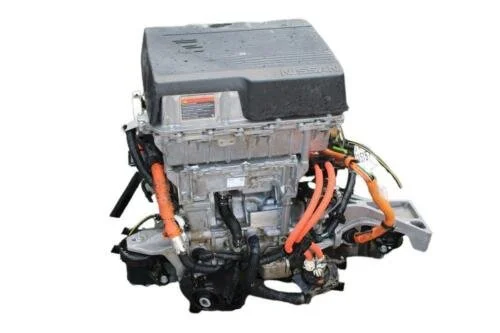New River EVs
Overview
There are only a handful of shops in the country that do EV conversions non-manufacturer-endorsed battery swaps and most of them are on the west coast. Even at that, most of the shops doing EV conversions are boutique shops for 1-off conversions of collector cars and the like. It seems like there’s a big vacuum that could be filled by offering EV swaps into a common platform that has wide appeal, availability, and affordability. This also means choosing EV components based on availability. There’s more room to make EV swaps affordable to the “upper middle class” than you might think. Used functioning Tesla drive units may be a coveted prize, but used functioning 1st gen Nissan Leaf drive units are basically considered scrap. Batteries will always be expensive, but there is a lot of room to give customers the option to tailor battery size to their needs.
So what would the business actually look like? Take a look at EV West as it’s essentially the same business model but with a different target demographic. They are a garage that does custom boutique EV swaps just like the rest, they have an online store for EV parts just like the rest, but they also design EV conversion kits for specific cars that can be sold both to hobbyist and to other EV shops. That last part is where I really want to focus.
Given how cheap some used EV components are becoming and the total lack of kits to drop these components into affordable cars, I think there’s a huge untapped market of both hobbyists and non-technically-inclined enthusiasts that would be willing to spend say $15-$20k on an EV conversion of their trusty old crossover/SUV/truck with a blown engine or transmission but would not be willing to replace it with a new EV. It’s well and good to say that EVs start in the $40k range, but that’s for a compact car. What’s the cheapest electric truck or SUV you can actually buy right now? $70k? $90k? There are only a handful of AWD crossovers being offered as EVs in the next few years, and they will be very compact in form factor and likely have limited availability.
So this is where I think EV West is leaving meat on the table. Their kits are focused on putting Tesla motors classic VWs and Porches. Where are the kits for dropping Nissan Leaf motors in place of a Subaru EJ or a Chevy LS engine in a Forester, Outback, Silverado, or Suburban? There a lot of people who depend on off-road capable vehicle such as these who are not going to find the EV offerings in that area sufficiently affordable for several years if ever. Given that Subaru engines tend to have a poor record for reliability and are generally long-outlasted by the chassis components, the progressive nature of Subaru owners as a demographic, and all of Subaru’s “love” marketing encouraging a personal connection to your vehicle, Subaru swaps seem like a particularly juicy target. What if there was a more environmentally friendly, more novel, and more feel-good alternative to sending the old family car with a blown engine to the crusher. Imagine that car is the family’s 2nd or 3rd vehicle, and there is an option for an EV conversion at a fraction the price of a new EV. Wouldn’t that EV conversion sound appealing as an easy entry into the EV ownership they’ve been thinking about, but can’t justify at Rivian or Tesla prices?
So that’s the plan in a nutshell: Do what EV West is doing with the kits, but target it at vehicles that have boarder appeal to progressive Appalachians, and do it with EV components that are affordable to the middle class. Aside from that, also offer installation services of all the kits that the other EV shops sell, and offer unauthorized service of EVs from Nissan, Tesla, Chevy, etc. We can also do the custom boutique 1-off conversions if the price is right, but development of kits that can be sold with broader appeal should be the main focus.
A Nissan Leaf motor/inverter/charger/converter/differential stack. Model year 17+. These were integrated into one stack from MY 13+ For MY 11-12, these were separate components.

